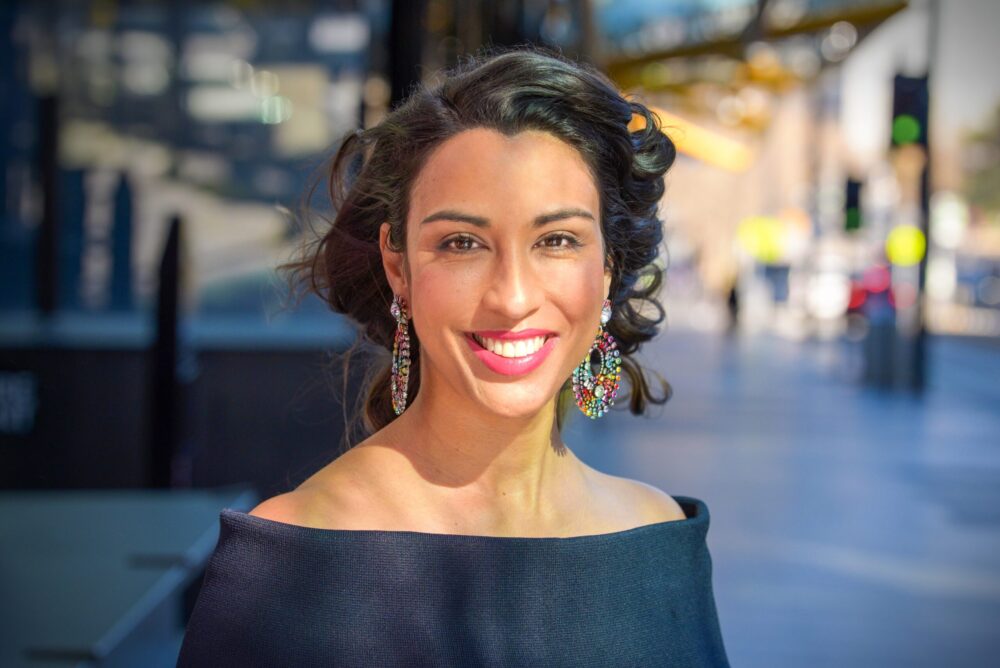Last year, I boycotted International Women’s Day. I went to a lovely event at the National Gallery, booked myself into a hotel in the city, took myself out for dinner and to the ballet, and refused to do any work, give any speeches, or attend any morning teas.
Why?
I’ve worked to promote women’s rights and advance gender equality all day, every day for a quarter of a century. And I was tired. So very tired. Too tired and outraged by the sexism, violence, and discrimination that women and gender-diverse people face every day, to put on a smiling face, share some platitudes, and drink a cup of tea.
From the time the banners go up announcing International Women’s Day celebrations, to the time they come down, multiple women will have likely been murdered by their intimate partners, sexual harassment will be happening in the very workplaces that are hosting these events, and women and gender-diverse people working in these organisations will still be being paid less than men. To add insult to injury, I’m often asked to do these events for free, and the events themselves are often organised by women as an additional responsibility to their own jobs, without additional pay or support.
Here’s some things that should be grabbing our attention this International Women’s Day.
In spite of some progress, still only 22% of CEOs in Australia are women, and 22% of Australian boards are comprised of only men. One in two women have experienced sexual harassment at work, and people who also experience other kinds of discrimination and disadvantage, such as Aboriginal and Torres Strait Islander women, women living with a disability, people of diverse sexual orientation and young women are all more at risk. In Australia, women still earn $13,182 less than men each year driven, first and foremost, by discrimination. And we still don’t have national data on the gender pay gap for First Nations women, women of colour, or women with a disability…
As the day rolls around again, the predictable questions have begun. Why are we focused on the rights of women? Why is there an International Women’s Day, but not an International Men’s Day? (There is actually, look it up). Why all this fuss when women are already equal? I understand the confusion. Sure, things have improved. We’ve seen some progress absolutely worth celebrating. In the last 50 years, women have moved into employment and public life in ways which would have been unfathomable to previous generations. In Australia, women now make up 47.9% of the workforce. There are some high-profile women chief executives, and worldwide, girls and boys are getting closer to equality, when it comes to getting an education.
And yet, the gender pay gap persists, and women and gender-diverse people are still significantly overrepresented in part-time and casual work, impacting their financial and job security, and career progression. Only 28 of 150 elected heads of state, and 13 out of 192 heads of government around the world, are women,and those very women in powerful positions, often find themselves subject to a torrent of sexist behaviour from men, online and otherwise. Furthermore, gender inequality is being reinforced by gender biases in new technology including AI systems.
When we look at the lived realities of women in this country, particularly women of colour, First Nations women, women with disabilities, and women from the LGBTIQA+ communities, the disconnect is even more striking. In Australia, First Nations women are 35 times more likely to be hospitalised for family-violence related assaults, than other Australian women. More than 70% of women with disability have been victims of violent sexual encounters at some time in their lives.
Almost 60% of women of colour in Australian workplaces experience discrimination based on their race and gender and lesbian, bisexual and transgender women are collectively three times more likely to experience depression. As women, we’re still far from equal, especially those of us who are also affected by other forms of discrimination.
And yet, the solution to this, year after year, on International Women’s Day, seems to be cups of tea and cake. It’s become a bit of a joke. But it’s not funny. To me, it’s come to represent the minimisation that women receive from all corners of society, every day, and the disconnect between what our workplaces do to appear as though they care about equality, and real, long-term commitment to address these issues.

“The solution to this, year after year, on International Women’s Day, seems to be cups of tea and cake. It’s become a bit of a joke,” writes Dr Emma Fulu. Picture: Shutterstock.
The evidence shows that these issues are deep, rooted and embedded in our very culture and society. They require similarly deep and long-term solutions and, in fact, most organisations will need to transform their cultures, in order to become fully inclusive. This means that most workplaces have real, internal work to do, beginning with an understanding not only of the extent of the problem, but to the value it brings, a commitment to action and addressing systemic barriers to equality at all levels of the organisation, attracting, and retaining, women and diverse talent, and committing to, and measuring, cultures of meaningful inclusion and belonging, not just diversity.
I understand that this is hard. I get the desire to skip those difficult conversations, to just repeat what has been done before, even if it didn’t work. But here’s the thing. These issues are not going away. Workplaces are facing pressure from all angles to create more equal, diverse, and inclusive cultures, in a way that’s truly meaningful, and not just about how it looks. In a recent study, 39% of all respondents say they have turned down or decided not to pursue a job because of a perceived lack of equality and inclusion at an organisation.
When we look to Gen Z, who have just joined the workforce, that number grows to 77%. Regulators are also shifting their attention to the workplace. In Australia, new requirements for the public sector under Victoria’s Gender Equality Act is just one example.
Workplaces are where many people start to change their mind about social change, and they’re hugely important. It’s where we’ll spend close to one third of our lives. In changing our workplace cultures, making them accessible and inclusive places where everyone feels like they belong, we can also create meaningful social change. And to me that’s a huge opportunity.
Getting equality right, means a workplace where power and opportunities are shared equally. Where people can show up as their full human selves. Where the diversity of people’s lived experiences and perspectives is celebrated. Where people are paid fairly and equitably. Where the workforce isn’t segregated by gender. That would lead to greater innovation, economic prosperity and health and well-being for all. Surely that’s something we all want to work towards.
People often ask me if I get depressed doing this work, day in and day out. While there are indeed days that I feel heartbroken – for example when another woman is senselessly murdered, or when our political debates are couched in racist undertones – most of the time I feel hopeful and optimistic.
That is in large part because of the incredible courage, honesty, and resilience I’ve seen with moments like #metoo and Black Lives Matter growing to become global calls to action. The Respect@Work bill has passed, and there’s a new political mandate for action and accountability on gender equality, and far from being disheartened, it’s inspiring to be amid such an important period of change.
So, this International Women’s Day, I won’t be boycotting the day. But you won’t find me at another morning tea, either. UN Women’s theme for IWD 2023 is ‘Cracking the Code: Innovation for a gender equal future’, which highlights the role that bold, transformative ideas, inclusive technologies, and accessible education can play in combatting discrimination and the marginalisation of women globally.
And that’s exactly what I’ll be working on – transformative education using innovative technologies to drive culture and behaviour change. I’ll be continuing to have those hard conversations about transforming the structures, systems, and values of an organisation. I’ll be using my creativity, and my voice, to remind people that these issues haven’t gone away, that they touch all of us, whether we’re women, men, or gender diverse. And I’ll be saying then what I’m saying here now – that only then, will we get to a place of true equality where everyone feels a sense of safety and belonging at work.
Dr Emma Fulu is a researcher, feminist activist and leading expert on violence against women. She is the founder and Executive Director of the Equality Institute, a global feminist agency dedicated to the prevention of violence against women and girls. Before founding EQI, she worked at the United Nations and led the ground-breaking studies on the prevention and prevalence of violence against women and girls. She is frequently sought out as a commentator on these issues - recently, she has been a guest on ABC Q+A, given a talk at TedxCecilStreet, and written for The Saturday Paper.





